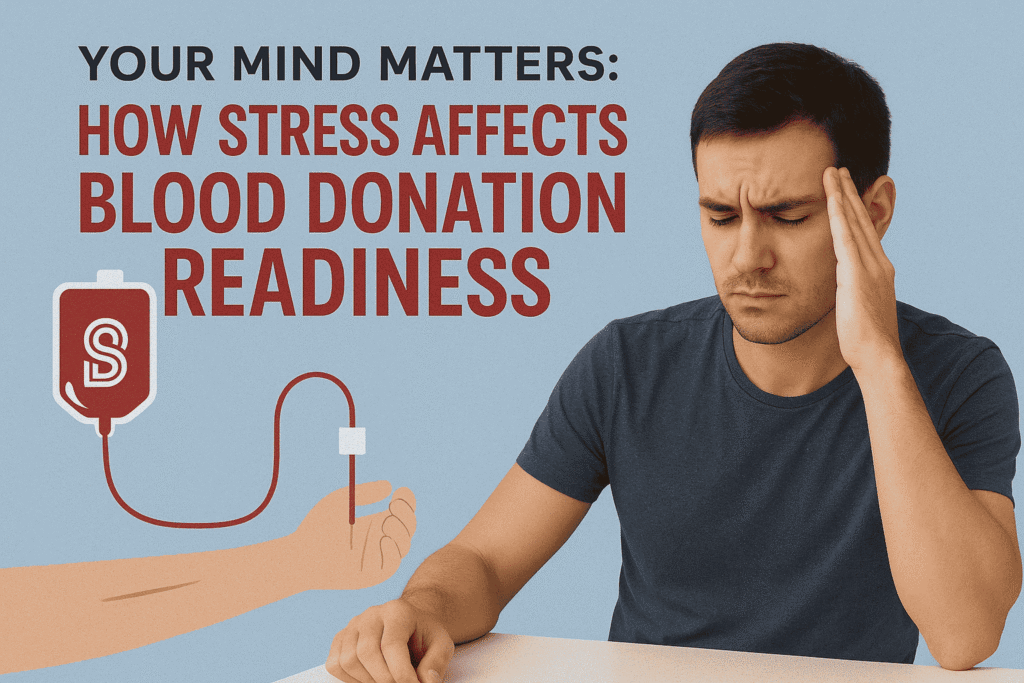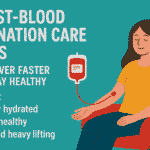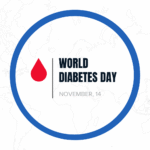Blood donation is one of the most selfless and impactful ways to save lives. However, being a blood donor also means being aware of your body’s readiness — and one of the key factors that can affect it is stress. While stress might feel like just a mental or emotional challenge, it can have a significant impact on your blood pressure, and consequently, your eligibility to donate blood.
Understanding the Connection Between Stress and Blood Pressure
Stress triggers the body’s natural “fight or flight” response. When you’re anxious, worried, or under pressure, your body releases stress hormones such as adrenaline and cortisol. These hormones cause your heart to beat faster and your blood vessels to constrict, temporarily raising your blood pressure.
For most people, this spike is short-term. Once the stressful situation passes, blood pressure returns to normal. But if stress becomes chronic, it can keep your blood pressure elevated for longer periods, putting extra strain on your heart and arteries.
Why Blood Pressure Matters in Blood Donation
Blood pressure is one of the most important parameters checked before every blood donation.
To ensure donor safety, most blood donation centers require your systolic pressure (upper number) to be between 100–140 mmHg, and diastolic pressure (lower number) between 60–90 mmHg.
If your blood pressure is too high or too low, you may be temporarily deferred from donating blood. This isn’t a rejection — it’s a precaution to protect you from feeling dizzy, faint, or unwell during or after the donation.
How Stress Can Affect Your Readiness to Donate
-
Elevated Blood Pressure:
If you’re anxious before your donation — perhaps worried about the needle or the process — your stress level can cause a temporary rise in blood pressure. Even if you’re usually healthy, this spike may make your readings appear higher than normal. -
Increased Heart Rate:
Stress can increase your heart rate, which may also cause discomfort during donation or lead to an inaccurate assessment of your fitness. -
Feeling Nervous or Lightheaded:
Mental tension can make you hyper-aware of sensations like dizziness or weakness, even if your vitals are stable. This can add unnecessary anxiety during the process.
Simple Tips to Reduce Stress Before Donating Blood
-
Get Enough Sleep:
A good night’s rest can stabilize your blood pressure and help you feel calm and refreshed. -
Eat a Healthy Meal:
Don’t donate on an empty stomach. Have a light meal rich in iron and stay hydrated before you go. -
Practice Deep Breathing:
Breathing exercises or a few minutes of meditation can lower your heart rate and blood pressure before your donation. -
Stay Positive:
Remind yourself that your small act of kindness can save up to three lives. Focusing on the positive impact can replace fear with pride. -
Avoid Caffeine and Smoking Before Donation:
Both can elevate your blood pressure and add to pre-donation anxiety.
The Takeaway
Stress may be invisible, but its effects on your blood pressure — and your readiness to donate — are real. By managing stress effectively and preparing yourself both mentally and physically, you can ensure a smooth donation experience and continue your journey as a regular blood donor.


